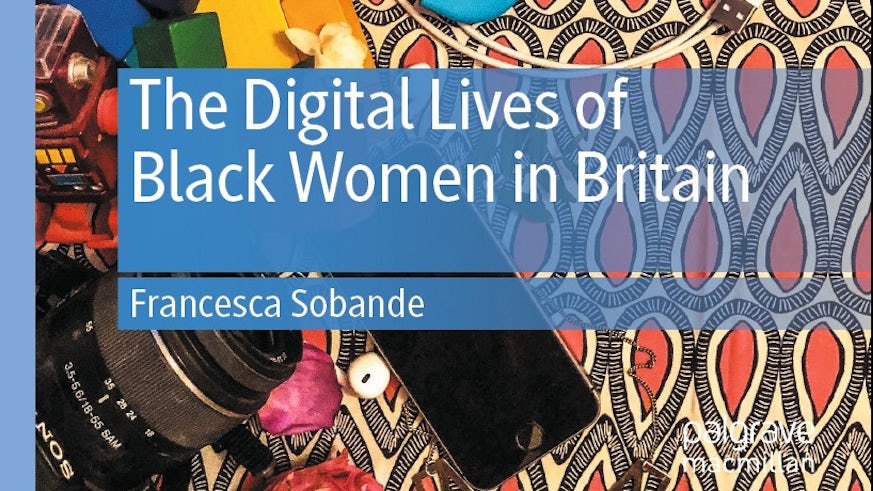Black women’s digital creativity and online experiences highlighted
1 October 2020

Black women’s digital creativity is at the forefront of media and cultural production changes in Britain, a Cardiff University academic says.
Dr Francesca Sobande, based in the School of Journalism, Media and Culture at Cardiff University, has shared key findings from her five-year project which aims to fill a knowledge gap in the digital and everyday lives of Black women in Britain. Her research evidences how Black women in Britain are using digital tools in creative, collaborative, and cutting-edge ways. The project also highlights the pervasiveness of online abuse that is directed at Black women over social media, as well as how Black women’s digital creativity and labour is commodified and co-opted by others.
Dr Sobande’s work is captured in her new book, The Digital Lives of Black Women in Britain, which charts Britain’s changing landscape of media representation.
The book is shaped by Black feminist approaches and based on research that commenced in 2015. It draws on material accessed at the Black Cultural Archives (BCA) in Brixton, London, and the Spare Rib digital archive at the British Library, in addition to interviews with a number of Black women.
Dr Sobande said: “Twenty-first century digital developments such as the rise of social media have impacted how people create, work, and share knowledge. Black women’s digital creativity and work is at the forefront of many significant media, creative, and cultural production changes in Britain, yet they rarely receive sustained public recognition and substantial sources of long-term institutional support.
“The digital experiences of Black women in Britain are often distinctly affected by vitriolic online abuse that is aimed at them and is a result of interconnected antiblackness, sexism, misogyny, classism, colourism, xenophobia, and other intersecting oppressions.
“Although Black women are increasingly identified as digital ‘trendsetters’ by businesses, they are also simultaneously erased and hyper-visible as creators, knowledge-producers, and social movement builders. The digital creativity of Black women is often exploited by commercial organisations, including brands that attempt to ‘diversify’ their image due to its potential profitability.”
From accounts of twentieth-century activism and television representations, to Black women’s experiences of YouTube and Twitter, Sobande's book traverses tensions between digital culture’s communal, counter-cultural, and commercial qualities.
She added: “My work also shows how digital outlets have contributed to transnational Black activism and solidarities, including in relation to the Black Lives Matter movement. Just as ‘the personal is political’, it is sometimes also ‘digital’.”
The Digital Lives of Black Women in Britain can be purchased from Palgrave Macmillan here (as an ebook or in print).
Chapters 2 and 4 are available open access under a Creative Commons Attribution 4.0 International License via link.springer.com. They can be accessed here:


